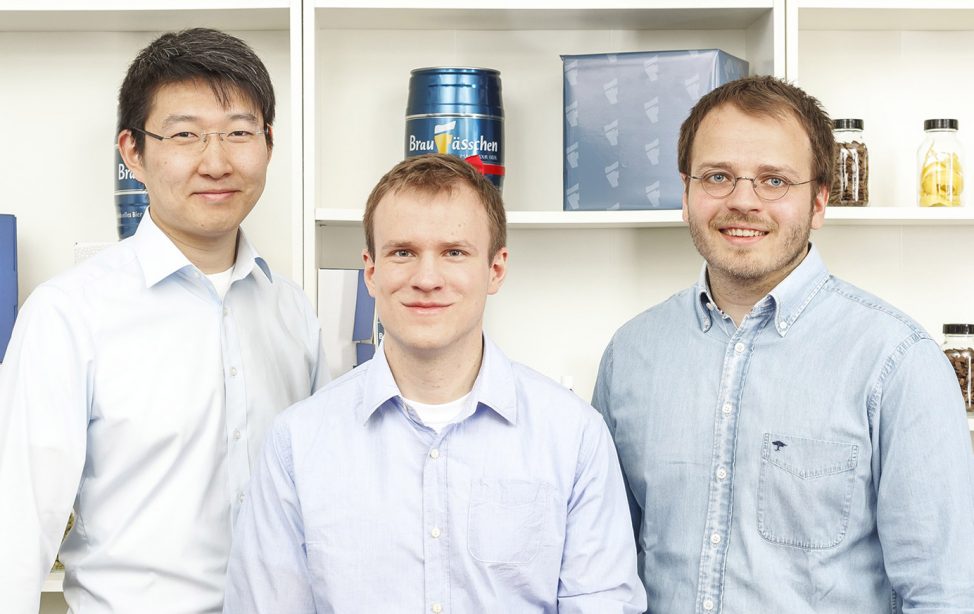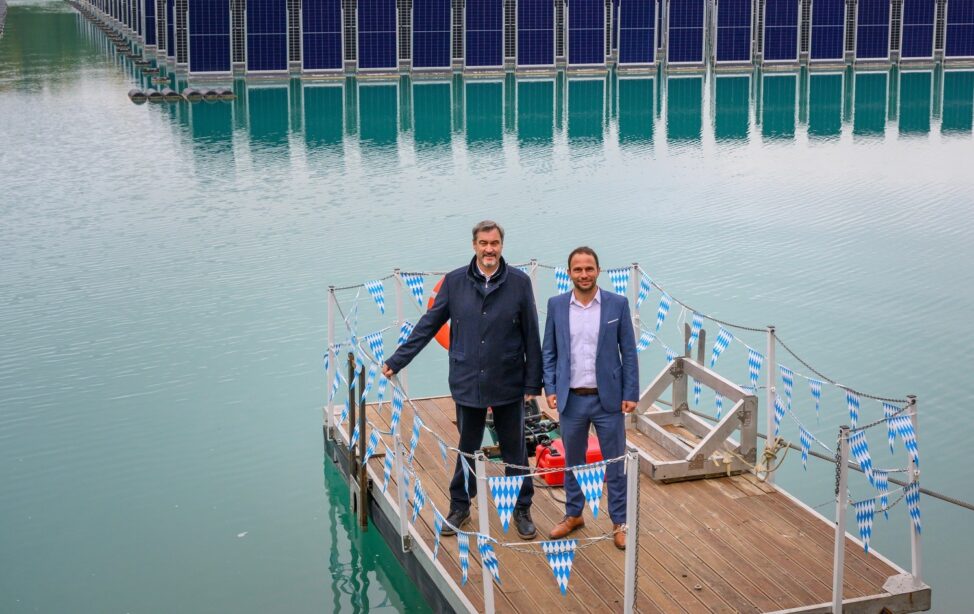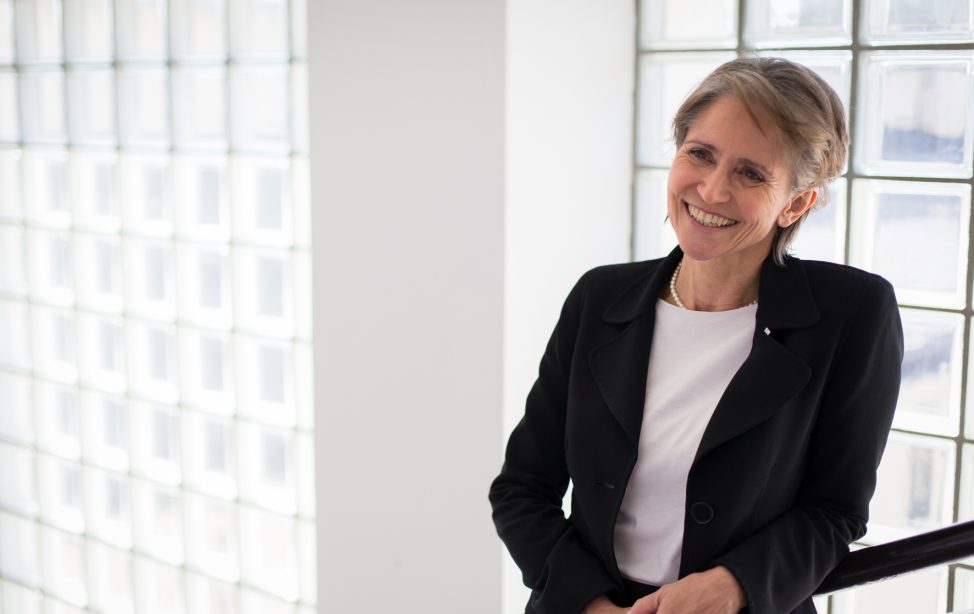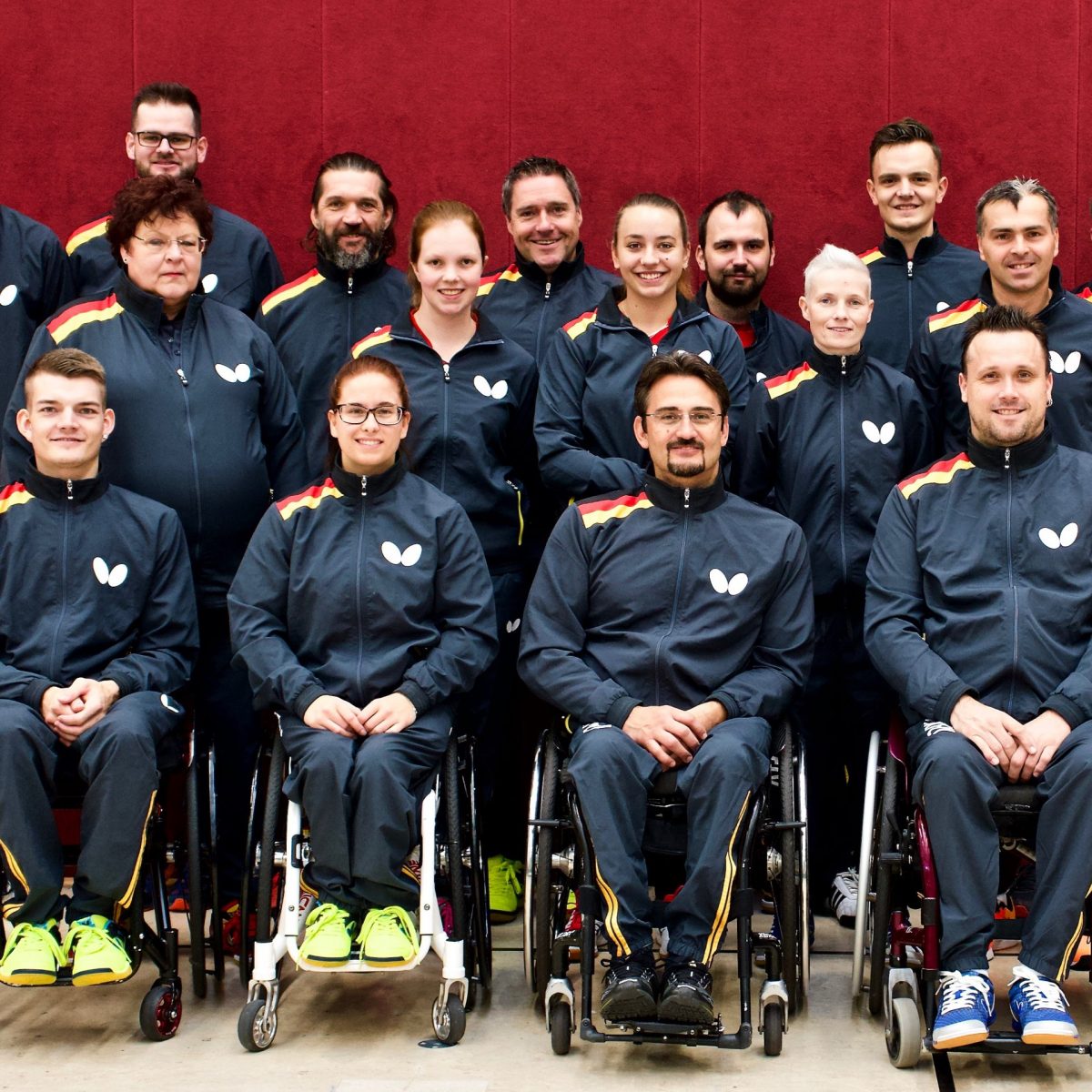
On the basis of a game analysis software developed at TUM, Michael Fuchs ensures the decisive competitive advantage of the Para Table Tennis National Team (Image: Hannes Doesseler).
TUM’s Chair of Performance Analysis and Sports Informatics had advertised a master thesis on the topic of ‘Match analysis and competition diagnostics in table tennis’. A ‘winning combination’ for the computer scientist and passionate table tennis player. Michael Fuchs himself started playing when he was nine years old. He also holds an A trainer’s license and celebrated great success as the trainer of the women’s Bundesliga team of SV DJK Kolbermoor. He wrote his master’s thesis, became a scientific assistant and is currently doing his doctorate on the subject of competition diagnostics in table tennis. “For me it couldn’t be any better,” he says with a beaming smile.
Dream job via TUM
The decision to stay at the chair instead of doing his teacher traineeship led him straight to his ‘dream job’. As part of a project by the Federal Institute for Sports Science (BISp) and the German Table Tennis Federation (Deutscher Tischtennisbund), the research assistant and his colleagues at TUM developed a new type of software which helps to objectively analyse and evaluate table tennis games and to create precise profiles of opponents. The software quickly attracted the attention of those responsible. “It got noticed that it can bring crucial competitive advantages”, the scientist recounts. Financed by the federal government a new position for match analysis and training diagnostics was created. Michael Fuchs applied – and got it.
The opportunity to research and work in this special field is only available at TUM. I am infinitely grateful for it.
On this job, the teacher Michael Fuchs is always aware that it is crucial to include the team. “Otherwise, the best software won’t help,” the computer scientist knows. After all, “the subjective perception of the players and the coach after a game is often quite different from the objective result of statistics”. What is more, the work of an analyst in table tennis is not very common yet. “A great deal of sensitivity is required,” says Fuchs. His own playing experience and his success as a trainer are an advantage here. “This lends me trust and respect,” says the native Chiemgauer. He is well aware of the importance of good contact with the players. “Without it, they wouldn’t let me meddle with their game system either.” The game analyst finds the cooperation with handicapped players particularly pleasant. “Some of them have suffered heavy blows of fate. Maybe that’s why they’re often more unbiased about new things than some of their colleagues in regular sports. They are very open to my analyses and suggestions for improvement. I like that a lot.”
Meanwhile, Michael Fuchs’ parents have come to like their son’s unconventional path. “They really like what I do and are proud of me,” he says. And he doesn’t rule out the possibility of taking on a solid job outside table tennis at some point in the future. But not as long as he can combine his two passions in this ideal manner. He is taking full advantage of that at the moment. Because: it couldn’t be any better.
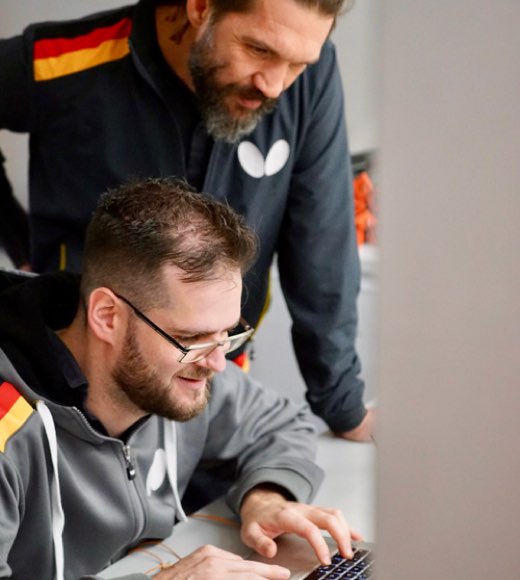
Michael Fuchs has managed to combine his two great passions – computer science and table tennis – as a match analyst for the Para Table Tennis National Team (Image: private).
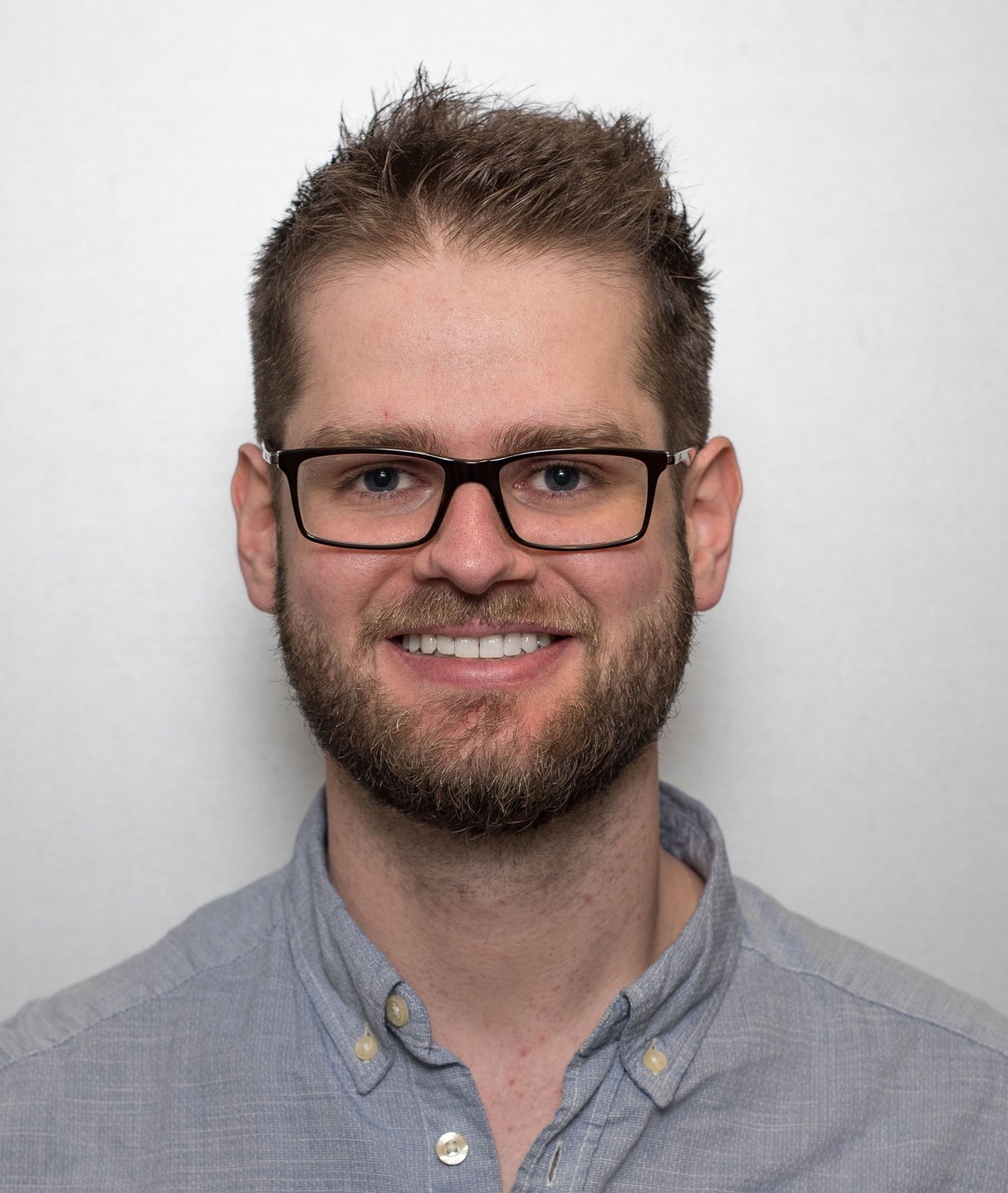
TUM Alumni Michael Fuchs (Image: private).
B. Ed. Informatics/Mathematics 2011, M. Ed. 2014
Born in 1988 in Prien am Chiemsee, Michael Fuchs studied Computer Science and Mathematics at TUM from 2007 to 2014. In 2014 he received his Master’s degree and passed the first state examination for the teaching profession at high schools.
Instead of completing his teaching traineeship, he opted for a position as a research assistant and doctoral student at the Chair of Performance Analysis and Sports Informatics at TUM. Here, he developed a table tennis game analysis software in cooperation with the German Table Tennis Association (DTTB) and the German Disabled Sports Association (DBS). The project was supported by the Federal Institute for Sports Science (BISp).
Since 2019, Michael Fuchs has been working as Federal Co-coach Analysis for the German Para Table Tennis National Team.
